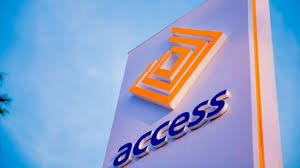Business
To Enhance Ease of Doing Business, Banks in Ghana Commence Use of GH QR Code

Six banks in Ghana have initiated services to allow the public pay for goods and services through the universal Gh QR code.
The banks are Ecobank, GCB Bank, Zenith Bank, Bank of Africa, Fidelity Bank and Agriculture Development Bank. Other banks are still in the process to enable them begin the rollout.
The Ghana Vice President, Alhaji Dr. Mahamudu Bawumia, launched the universal QR code in March this year. The service adds on to the plethora of electronic payment solutions that the Ghana Interbank Payment and Settlement Systems (GhIPSS) has rolled out over the years.
With the QR code, customers only need to scan the codes displayed at various shops and other outlets with their smartphones to make payment. Those who do not have smart phones can pay with their feature phones by dialling a code that will also be displayed at the merchant’s location. QR code is cheap and easy to set up. It is also a quick and secure way to make payment.
It takes away the direct contact associated with cash transactions, which makes it safer to use during the Covid-19 pandemic.
Ecobank had earlier deplored QR codes but could only be used by their customers. However with the introduction of the Gh QR code, Ecobank has converted most of their existing QR codes of clients, to make them acceptable to all customers regardless of their banks. The other five banks have begun deploying their Gh QR codes at various outlets.
Chief Executive of GhIPSS Mr. Archie Hesse commended the banks that have started deployment and encouraged businesses to liaise with banks to have the Gh QR code installed to increase their payment options to customers. Mr. Hesse also challenged the remaining banks to quicken up the processes, as they risk losing their clients to other banks.
The QR code for payment is simple to set up as it only involves generating unique QR codes which can be a mere sticker posted on the wall of the shops or on a small stand.
“Once you find the QR Code displayed, you just have to scan and you pay or dial the USSD code and pay, it is that convenient. Gh QR is universal so anyone can use any of them, regardless of your bank”, Mr. Hesse stressed.
A wide range of businesses including taxi drivers, small shops, super markets, pharmacies, chop bars, restaurants as well as major service providers can all use QR codes to accept payments, the GhIPSS Boss noted.
Ghana’s payment system has been modernised with the introduction of many electronic payment solutions that have made payment a lot more convenient, secure and faster.
The addition of the Gh QR code has increased the choice that customers have to pay for goods and services. This will eliminate the several instances where businesses lose out, because the customer has run out of cash.
Currently customers can pay from either their bank account or mobile money wallet through different channels such as MoMo pay, POS and now Gh QR code among others.
Business
CBN Retains Interest Rate at 27%

The Monetary Policy Committee of the Central Bank of Nigeria has maintained the benchmark interest rate at 27 per cent, extending its pause on monetary tightening.
The CBN Governor, Olayemi Cardoso, announced the decision on Tuesday at the end of the committee’s 303rd meeting in Abuja.
Cardoso said, “The Committee decided by a majority vote to maintain the monetary policy stance,” indicating that members were not yet convinced that current economic conditions warranted another reduction.
The move follows the 50-basis-point cut implemented in September 2025, the only rate reduction since the tightening cycle began under the current CBN leadership.
It also marks the fourth consecutive hold this year.
The MPC had raised rates six times in 2024 amid surging inflation and currency pressures.
The Punch
Business
Access Bank Launches “DettyFusion” Platform for Seamless Detty December Experience

Access Bank Plc, Nigeria’s largest retail bank, is set to unveil DettyFusion, an innovative all-in-one digital platform designed to help Nigerians at home and in the diaspora seamlessly discover, plan, and enjoy entertainment events during the upcoming Christmas and New Year festive season.
Billed as the first-of-its-kind entertainment aggregator in the country, DettyFusion will serve as a centralized hub where users can explore event calendars, purchase tickets, access exclusive discounts, participate in curated festive experiences, and make safe, seamless payments throughout the holiday period.
Speaking on the forthcoming launch, Access Bank’s Head of Mobility, Ishmael Nwokocha, said the platform was inspired by the bank’s commitment to enhancing customer experience during the highly anticipated Detty December season.
“Every December, Nigerians look forward to moments that bring joy, connection, and unforgettable experiences. The launch of DettyFusion will create a single gateway that makes it easier, safer, and more convenient for customers to enjoy the thrills of Detty December,” Nwokocha stated.
He added that the platform reflects Access Bank’s drive to deliver innovative lifestyle solutions that extend beyond traditional banking services. “DettyFusion brings together key features that meet the needs of today’s digitally active and experience-driven audience,” he said.
With this initiative, Access Bank continues to reinforce its position as a leading lifestyle enabler, supporting Nigeria’s creative sector while empowering customers to enjoy top-tier entertainment during the festive season.
With DettyFusion, Detty December just got smarter, more convenient, and even more rewarding.
Business
How Access Bank is Supporting Women Driving Africa’s Growth Story

Across Africa, women are fast becoming the heartbeat of economic transformation. From bustling open-air markets to high-tech boardrooms, women-led enterprises are redefining what is possible for the continent’s future.
Whether as market traders expanding their reach through digital platforms, tech founders scaling innovations across borders, or artisans turning local crafts into global brands, women’s contributions are now central to Africa’s economic resurgence.
Even as they break new ground, many still face formidable barriers. Access to finance, mentorship, business education, and supportive networks remains limited. Structural issues such as weak property rights, gender bias, and inadequate legal protections often hinder women from securing loans or expanding their businesses.
Consequently, many women-owned ventures remain small, informal, and vulnerable to economic shocks.
Recognising both the promise and the obstacles, Access Bank has positioned itself at the forefront of empowering women across the continent. Recently named Africa’s Best Financier for Female Entrepreneurs by the EMEA Finance Awards, the Bank has earned global recognition for its commitment to inclusion, innovation, and sustainable impact.
At the centre of this effort is the W Initiative, one of Africa’s most comprehensive women-focused banking programmes. Unlike conventional banking, it combines finance with mentorship, training, and community support, acknowledging that true empowerment requires more than access to capital. The initiative meets women wherever they are on their entrepreneurial journey, from start-ups to growing enterprises and corporate leadership.
The W Power Loan offers affordable credit with flexible terms, enabling women to invest in expansion, inventory, or technology. The W Academy provides leadership and business training on financial literacy, marketing, and regulatory compliance, while the W Community connects women to peers, mentors, and role models across industries.
Importantly, these offerings extend beyond urban centres. From microloans sustaining traders in rural markets to leadership programmes developing female executives in multinational firms, Access Bank’s approach is deliberately inclusive. By partnering NGOs, business associations, and government agencies, it reaches women in underserved communities, ensuring participation in Africa’s economic rise.
The results are evident. Thousands of women have accessed credit, training, and networks through the Bank’s initiatives, enabling them to launch and scale businesses, create jobs, and uplift their communities. The ripple effects are far-reaching: increased household income, improved family wellbeing, and greater economic resilience. Women who once faced daunting barriers now serve as role models and change-makers, inspiring others to follow their path.
Studies show that when women thrive, societies prosper. The World Bank and African Development Bank note that empowering women fuels GDP growth, improves health outcomes, and enhances social stability. By directly addressing structural gaps in access to finance and information, Access Bank helps to unlock this transformative potential.
Apart from supporting entrepreneurs, Access Bank promotes gender inclusion within its own organisation. Its leadership pipeline identifies and advances talented women, while mentorship and wellness programmes help female professionals thrive. The Bank also uses public platforms, from conferences to policy dialogues, to share success stories and advocate for gender diversity across sectors.
The EMEA Finance recognition thus goes beyond trophies and titles; it affirms that profitability and purpose can coexist. For Access Bank, supporting women’s advancement is smart economics. By embedding inclusion into its DNA, the Bank is shaping a financial ecosystem that views women as equal partners in progress.
Access Bank’s influence also extends into advocacy. Through forums, roundtables, and research collaborations, the Bank engages policymakers, civil society, and business leaders to identify and dismantle barriers facing women entrepreneurs. Its campaigns amplify women’s voices, spotlighting their achievements and driving conversations around inclusive growth.






